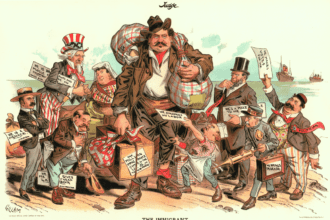We’ve witnessed the meteoric rise of populist right parties, positioning themselves prominently on the stage. As they carve out their space, it’s their distinctive discourse strategies that truly set them apart. Drawing from our extensive research in this field, we’ve delved into the intricacies of these strategies, with a particular emphasis on notable parties such as Vox in Spain and Lega in Italy.
Both Vox and Lega, while operating in different political climates, share a common thread in their approach. They challenge traditional narratives, introducing fresh perspectives that resonate deeply with segments of the populace. It’s not merely about opposing established views; it’s about crafting a narrative that speaks to the heart of their base. This narrative, often rooted in a sense of national or regional identity, has proven to be both compelling and influential.
By understanding the essence of their discourse, we gain invaluable insights into the broader shifts in political dynamics. It’s a testament to the power of narrative in shaping public opinion and driving political change. As we continue our exploration, we remain committed to uncovering the deeper layers of these strategies, providing a clearer picture of our evolving political world.
The Context: Navigating the Political Landscape
Amidst the ebb and flow of global politics, the narratives spun by parties like Vox and Lega have become impossible to ignore. These populist radical right parties, with their fiery rhetoric and compelling stories, have not only captured the attention of their nations but have also significantly influenced the broader European political discourse.
How do these parties, with shared ideological roots, craft their narratives differently to resonate within their distinct political landscapes?
While the political arenas of Spain and Italy are distinct, both Vox and Lega have managed to tap into a shared sentiment of disillusionment and desire for change. They’ve artfully woven narratives that challenge the established order, presenting themselves as the voice of the unheard. Their discourse isn’t just about opposition; it’s a call to action, a rallying cry for those who feel marginalized by mainstream politics.
But what lies beneath this surge in popularity? It’s their ability to craft and convey powerful narratives that resonate with deep-seated emotions and concerns. By framing issues in a way that speaks directly to the hearts of their followers, they’ve managed to create a strong and loyal base.
Our Approach: A Comparative Analysis
In our quest to understand the intricate tapestry of political discourse, we chose a comparative lens, focusing on two emblematic parties: Vox and Lega. While both parties champion the ideals of the populist radical right, their methods of communication and the nuances of their messages are tailored to their respective national contexts.
Venturing into this research, we were driven by a singular question: How do these parties, with shared ideological roots, craft their narratives differently to resonate within their distinct political landscapes? To answer this, we meticulously analyzed their public communications, speeches, and especially their engagement on social media platforms like Twitter, which has become a pivotal arena for political discourse in the modern age.
Central to their discourse is the art of framing.
Through this comparative approach, we aimed to uncover the subtle and not-so-subtle differences in their strategies. While Vox might emphasize national unity and the preservation of Spanish traditions, Lega often leans into regional pride and the distinct identity of Northern Italy. Yet, beneath these differences, there lies a shared strategy of positioning themselves against a perceived “other,” be it political adversaries, institutions, or broader global forces.
Key Findings: The Discourse Strategy
As we delved deeper into the communications of Vox and Lega, several intriguing patterns emerged, shedding light on the core strategies that fuel their political narratives. Central to their discourse is the art of framing: how they present issues, define adversaries, and position themselves within the larger political conversation.
One striking revelation was the consistent portrayal of their political opponents. Rather than engaging in nuanced debates, there’s a tendency to paint adversaries with a broad brush, often casting them in a negative light. This “us versus them” narrative serves a dual purpose. It not only rallies their base by creating a sense of unity but also delineates a clear boundary between the party and its perceived enemies.
When specific groups are demonized or marginalized, it raises concerns about inclusivity and equality.
Furthermore, both parties artfully weave a narrative of victimhood. By portraying themselves and their followers as marginalized or under threat, they tap into deep-seated emotions, fostering a sense of solidarity among their supporters. This narrative is particularly potent, as it not only galvanizes their base but also positions the party as the sole defender against perceived injustices.
In essence, the discourse strategies of Vox and Lega, while tailored to their specific contexts, share foundational elements. Their ability to craft compelling narratives, define clear adversaries, and evoke strong emotional responses has been instrumental in their political ascent. As we continue our research, these key findings serve as a foundation for understanding the broader implications of their discourse on the European political landscape.
Implications of the Populist Right for the Political Realm
Navigating through the discourse of Vox and Lega, it’s evident that their strategies extend beyond mere political rhetoric. The narratives they craft have profound implications, not just for their respective countries, but for the broader European political fabric.
The rise of populist radical right narratives can influence policy-making.
Firstly, by consistently framing certain groups or ideologies as adversaries, they indirectly challenge foundational democratic values. When specific groups are demonized or marginalized, it raises concerns about inclusivity and equality. Such narratives can inadvertently foster division, potentially leading to societal fragmentation.
Moreover, their portrayal of mainstream parties and institutions carries weight. By depicting traditional political entities as weak, ineffective, or even corrupt, they undermine public trust in established democratic processes. Over time, this can erode confidence in institutions that have long been pillars of democratic societies.
Additionally, the rise of such populist radical right narratives can influence policy-making. As these parties gain traction, their agendas and viewpoints can shape national policies, especially in areas like immigration, foreign relations, and domestic governance.
The discourse strategies of Vox and Lega are not just about winning elections or gaining followers. They have ripple effects that can influence societal dynamics, policy directions, and the very essence of democratic values.
Concluding Thoughts: The Power of Narrative
In our comprehensive exploration of the discourse strategies of Vox and Lega, the undeniable power of narrative stands out. These parties, through their carefully crafted messages, have not only influenced national dialogues but have also left an indelible mark on the broader European political spectrum.
Their success underscores a fundamental truth about modern politics: narratives matter. It’s not just about policies or political stances; it’s about the stories parties tell, the emotions they evoke, and the identities they forge. Vox and Lega have mastered this art, resonating with segments of the populace that felt overlooked or unheard.
However, with great power comes great responsibility. While these narratives have garnered support, they’ve also raised concerns. The polarization, the portrayal of the “other,” and the challenges to established democratic norms are all consequences of these potent narratives.
As we reflect on our findings, it’s evident that understanding these narratives is paramount. For scholars, politicians, and citizens alike, recognizing the impact of these stories is the first step in navigating the complexities of our evolving political landscape. As we move forward, it’s our hope that this research contributes to a more informed and nuanced dialogue about the role of narrative in shaping our political future.
Adapté à partir d'une étude académique pour un public plus large, sous licence CC BY 4.0.









